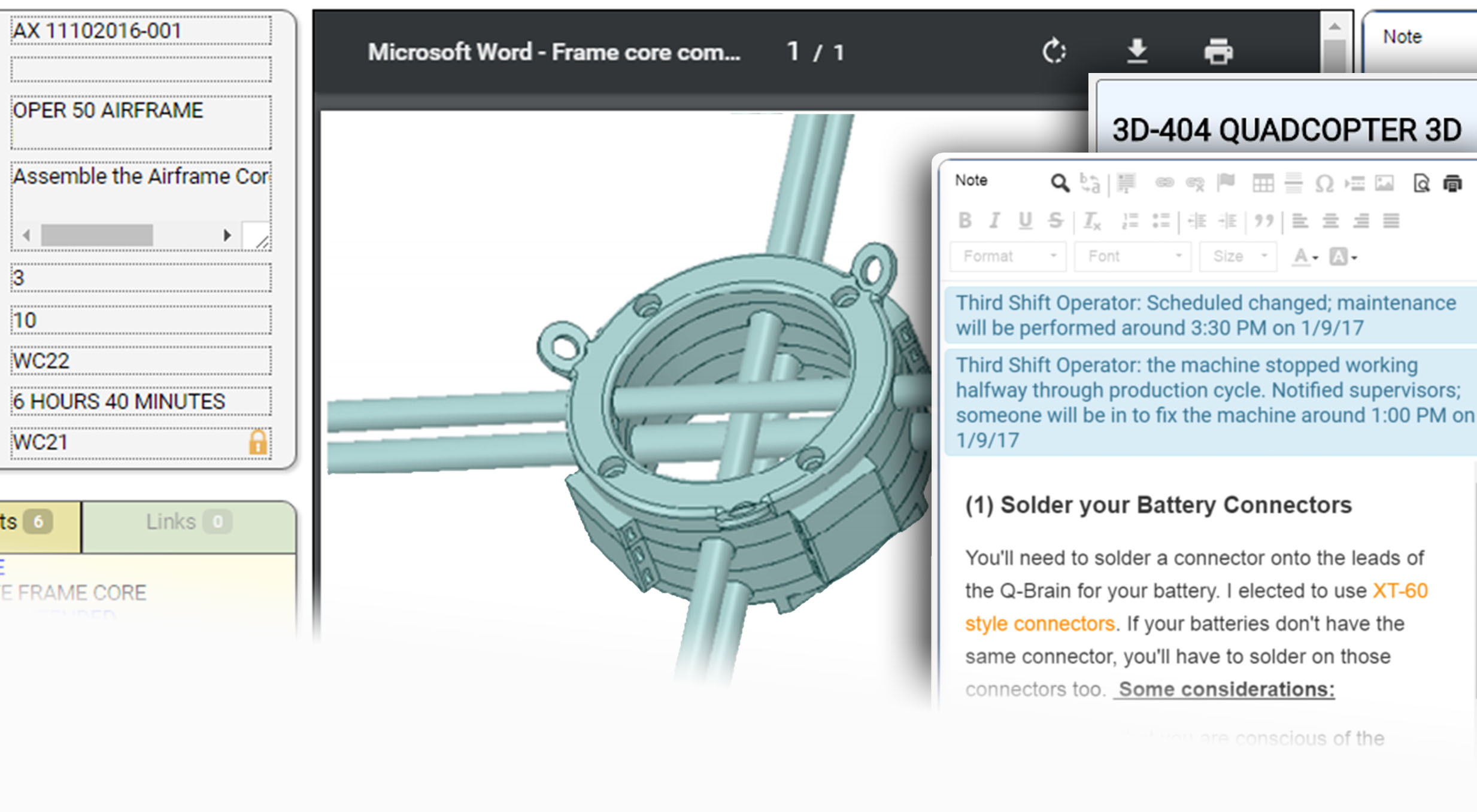Assembling Your Production System Project Team - The Visionary
Part 2 | The Visionary The first step in any successful manufacturing system project is to assemble the right people around the table. As we...
2 min read
Kristin McLane : March 12, 2019 at 9:00 AM

You need to assemble the right team, both internally and externally, to select, implement and support your manufacturing system. Manufacturers can’t expect IT alone to understand the needs of production just as IT wouldn’t expect QA to understand integration connections to/from your ERP. That type of departmental decision-making leads to narrow systems that rarely make it to implementation.
In our series on selecting the right team for your next project we will walk through each role, why it’s critical to the process and which of your team members show the right traits to be the ideal fit. Whether you're anticipating a smaller project or a massive overhaul, you'll need to put your team in place before any major decisions are made.
Getting Started
Though it feels intimidating, including a production system into your workflow is just like any other project you undertake around your plant. Goals need to be set early on, timelines/budgets need to be followed and the right leadership and supporting cast are critical to success. You simply cannot implement a system without considering every department involved, identifying your existing resources and connecting the team members that will represent your business throughout the project.
If you’ve gotten to the point of researching production control solutions it says a few things about you and your shop. You likely either believe your team is not operating at peak performance or you’ve been given orders from above that numbers are not meeting expectations. Maybe you’re one of the lucky ones at a company growing so quickly that you simply can’t keep up with the demand and your existing resources have been stretched too thin or funds have been set aside for productivity enhancement projects and you've been tasked with leading the charge.
Regardless of why you’ve launched your system search, it is critical that you take it as seriously as you do the other essential aspects of your job. This decision and the process to follow have the potential to impact your career in a very tangible way. You can either be another manager that couldn’t follow through on the big project or the hero who changed the way your shop saw success for generations to come.
Titles Versus Talents
Most companies build functional teams where people get a seat at the table based on titles or availability rather than required skills. The key issues with functional teams are the project management blind spots, aversions to ownership and fear of political ramifications from promoting change to the established comfort of the team. So, while you may have all the right titles at the table, you’re likely still missing the Implementer or Visionary roles required to move the project forward.
So, who makes the team? There are 5 key skill types that every internal team needs to increase their probability of successfully driving a project to completion. Once each role has been filled, it’s critical that everyone on the team understands his or her core responsibilities. Taking ownership of a role is what keeps a project from going off the rails and ultimately what gets your team across the finish line.
Check back next week to learn how to identify your team's Visionary
Once you fill the decision making table with the right people you will increase your probability of success exponentially. Keep your goals clear and encourage your team to stay within the boundaries of their assigned role’s focus. The best teams leave titles at the door and embrace debate. However, every organization develops its own unique culture, so be aware of the political rifts and proceed with caution.
Your Next Steps
Check back next week to continue your education on assembling your next manufacturing system project team. For more on selecting the right production control system for your industry, connect with a CIMx Expert today to map out your requirements, organize your priorities and get to work on increasing productivity throughout production with Quantum.

Part 2 | The Visionary The first step in any successful manufacturing system project is to assemble the right people around the table. As we...

Which ERPs Can Manage Production? | Part 2 of 2 In part 2 of our ERP for production series, we cover the critical factors to understand when...

As the demand for manufacturing increases, the need for a skilled workforce will grow, but many companies are doing little to address the problem. ...